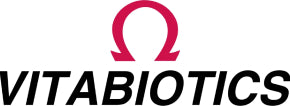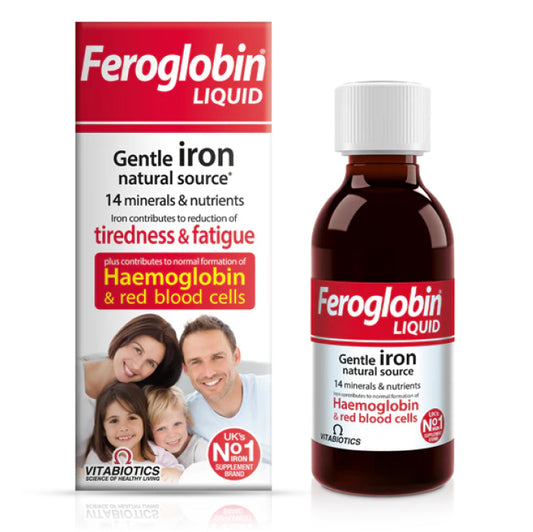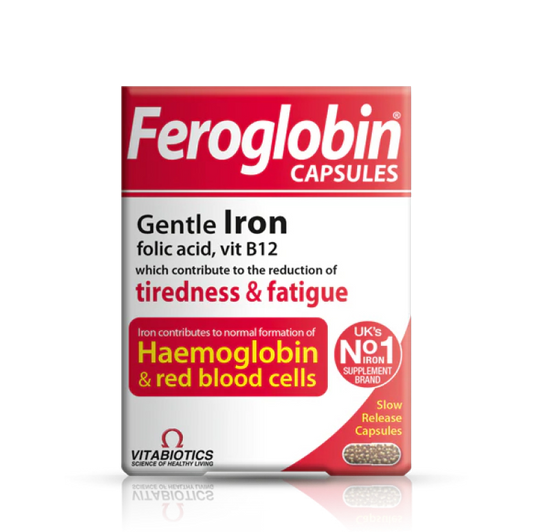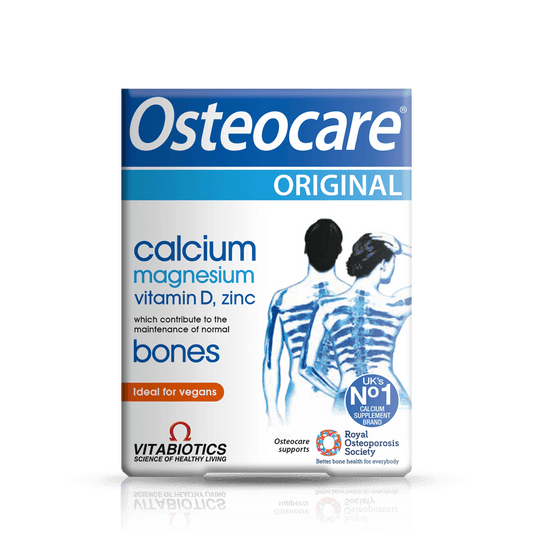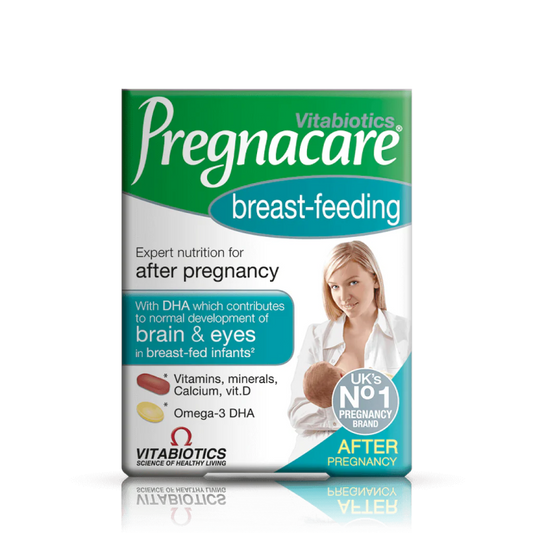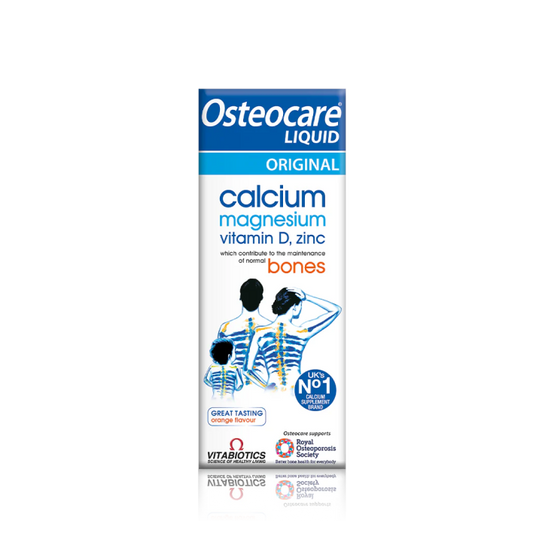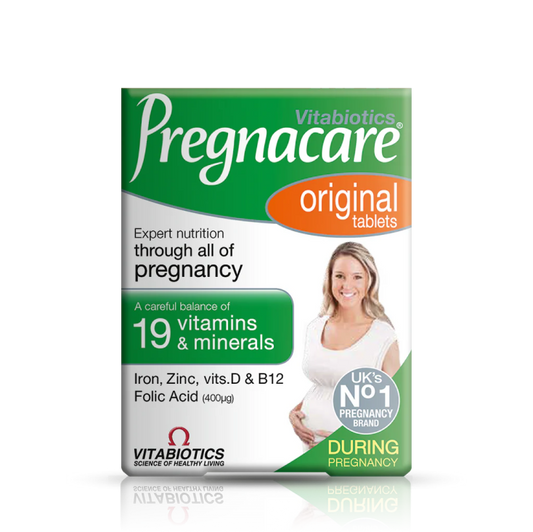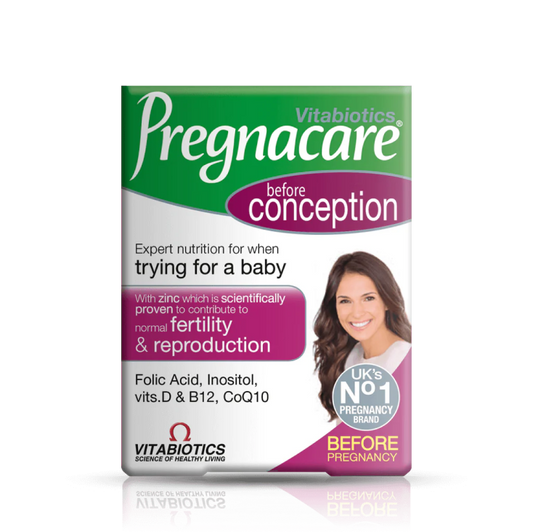What is vitamin B12?
Vitamin B12, also known as cobalamin , is an essential nutrient that plays a key role in the proper functioning of the human body. Like other B vitamins, it is water-soluble. Cobalamin is a term that covers a group of organic chemical compounds called corrinoids, which contain cobalt ions in their structure. Vitamin B12 occurs in various forms, which may differ slightly in their properties, but the human body has the ability to interconvert them. The fact that different sources consistently refer to vitamin B12 as cobalamin emphasizes its chemical identity related to the presence of cobalt. Mentioning the different forms and the body's ability to convert them is important for later understanding the types of supplements.
Unlike many other vitamins, the human body cannot produce vitamin B12 on its own . For this reason, it must be supplied externally through diet or supplementation. Vitamin B12 is stored mainly in the liver , which allows it to be used in the event of deficiencies. The inability of the body to produce B12 on its own emphasizes the need to obtain it from external sources, which is a key aspect in understanding how to maintain its appropriate levels and prevent deficiencies.
What role does vitamin B12 play?
Vitamin B12 performs many important functions in the body, the most important of which are:
- Effects on the nervous system
- Red blood cell production
- Energy metabolism and DNA synthesis
- Influencing the functioning of the nervous system
- Participating in the formation of myelin sheaths that surround and protect nerve fibers, ensuring efficient conduction of nerve impulses
- Participation in the synthesis of neurotransmitters, chemicals responsible for transmitting signals between nerve cells
Cobalamin also helps maintain normal psychological functions by supporting thought processes and perception. It may also play a role in preventing disorders of the central nervous system, such as mood disorders and dementia .
Vitamin B12 is essential for the production of red blood cells in the bone marrow . It participates in the synthesis of DNA, which is crucial for the proper formation of blood cells. Thanks to this, vitamin B12 counteracts anemia, including megaloblastic anemia, which is characterized by improper development of red blood cells.
Cobalamin plays an important role in the metabolism of fats, carbohydrates and proteins, enabling the body to use them effectively in various processes. Adequate levels of vitamin B12 are essential for the proper course of energy production processes in mitochondria and help protect these organelles from oxidative stress. Vitamin B12 contributes to maintaining proper energy metabolism at the cellular level.
In addition, vitamin B12 is essential for the proper replication of genetic material, i.e. DNA synthesis . It also acts as a carrier of methyl groups, acting as a coenzyme for enzymes involved in the synthesis of active forms of folic acid. Vitamin B12 regulates the level of homocysteine in the blood, and its deficiency can lead to an increase in the concentration of this amino acid. Additionally, it participates in the proper functioning of the immune system and plays a role in the process of cell division.
See also: Vitamin B6 - role in the body and supplementation
There is a clear connection between the various roles of vitamin B12. Its involvement in DNA synthesis has implications for both red blood cell production and nervous system function, including the formation of the myelin sheath. The role of vitamin B12 in homocysteine metabolism and its association with cardiovascular health suggest broader effects of this vitamin beyond its primary focus on the nervous system, red blood cells, and energy.
What are the symptoms of vitamin B12 deficiency?
Early symptoms of vitamin B12 deficiency may be difficult to spot at first and develop gradually. They may include a general feeling of tiredness, weakness, and lack of energy . Pale skin and mucous membranes and headaches are common. Other early symptoms include dizziness , difficulty concentrating and paying attention , as well as irritability and mood swings . Loss of appetite , nausea , and irregular bowel habits such as diarrhea or constipation may also occur. The wide range of early symptoms, some of which are nonspecific, such as fatigue, underscores the importance of considering B12 deficiency in the differential diagnosis, especially in at-risk individuals.
Early signs of deficiency may also include problems in the mouth, such as a burning tongue, enlarged and red tongue, loss of taste, and mouth ulcers. Unintentional weight loss may occur . Some people may experience paresthesia, a tingling or numb feeling in the hands and feet, as well as problems with balance and memory impairment. Nervousness and depressive symptoms may occur, as well as rapid heartbeat. In some cases, shortness of breath occurs.
Untreated vitamin B12 deficiency can lead to serious health consequences, both physical, neurological and psychological . Advanced neurological symptoms include severe numbness and tingling in the limbs, difficulty walking and changes in the way they move , as well as muscle weakness leading to paralysis of the limbs. Severe memory impairment, dementia and other cognitive impairments can occur , as well as significant mood changes, including depression or mania. Advanced deficiency can lead to visual disturbances such as blurry vision, narrowing of the visual field, difficulty distinguishing colors, and even complete vision loss.
What are natural sources of vitamin B12?
The richest sources of vitamin B12 are animal products. These sources include meat, especially offal, such as liver (beef, veal, poultry, pork) and kidneys (pork). Fish (pike, sardine, herring, mackerel, trout, pike-perch, salmon, tuna) and seafood (mussels, oysters, shrimp) are also excellent sources of vitamin B12. Chicken eggs (especially yolks) and dairy products (milk, yellow and blue cheeses, cottage cheese, yogurt) also contain vitamin B12.
|
Animal product |
B12 content (µg/100g) |
|
Beef or pork liver |
110 |
|
Calf liver |
60 |
|
Pork kidneys |
17 |
|
Clams |
11.3 |
|
Herring and mackerel |
about 10 |
|
Sardine |
14 |
|
Pike |
24 |
|
Chicken eggs |
1.6 |
|
Blue cheese (Lazur type) |
1,2 |
|
Yellow cheese |
1.00–2.20 |
|
Cottage cheese |
0.70–0.90 |
|
Beef |
1.4 |
|
Pork |
0.60–0.70 |
|
Turkey breast meat |
0.70–1.70 |
|
Drinking milk (3.5% fat) |
0.4 |
Vitamin B12 does not naturally occur in plant foods . However, some plant foods may be fortified with vitamin B12, such as breakfast cereals, granola bars, soy products, plant-based drinks (soy, oat, rice, almond), and even some types of bread (e.g. sourdough). It is always worth checking the product label carefully.
Mushrooms and other fungi are considered plant sources of vitamin B12, but they do not provide enough of this vitamin for the proper functioning of the body . Although microorganisms in the human digestive tract produce cobalamin, this takes place in the large intestine, from where the vitamins are no longer absorbed. Some fermented foods, such as kimchi or tempeh, may contain some vitamin B12. The limited availability and potentially low bioavailability of B12 in plant sources emphasize the need for supplementation or careful dietary planning for vegetarians and vegans.
Vitamin B12 Supplementation: When Should You Take It and What Form Should You Choose?
There are many different forms of vitamin B12 supplements available on the market. The most common form is cyanocobalamin , which is a synthetic compound of vitamin B12. The body has the ability to convert it into active forms: methylcobalamin and adenosylcobalamin. Cyanocobalamin is characterized by chemical stability and a long shelf life . Methylcobalamin is a biologically active form of vitamin B12 that does not require conversion in the body. It is well absorbed and often recommended for neurological problems. Hydroxocobalamin is another form , often used in injections for people with severe deficiency. Adenosylcobalamin is also an active form of vitamin B12. A less common form is sulfatocobalamin, the role of which in the body is not yet fully understood.
Vitamin B12 supplements are available in various forms:
- Tablets (including sublingual)
- Capsules
- Liquid drops
Sublingual tablets do not show any difference in effectiveness compared to oral forms. Vitamin B12 is also available in solutions for intramuscular injection, which are usually prescribed by a doctor in the case of confirmed deficiency. High oral doses may be as effective as injections in normalizing vitamin B12 levels in the blood .
This may be useful to you: Ultra Folic Acid folic acid supplement
Both methylcobalamin and cyanocobalamin are effective in correcting vitamin B12 deficiencies. Methylcobalamin is often preferred due to its better absorption and direct action, since it is already in an active form and does not require conversion in the body. It may be particularly beneficial for people with absorption problems or certain genetic mutations. Cyanocobalamin is more stable and widely available. The body converts it into the necessary active forms, which is sufficient for most people. The choice between these forms may depend on individual needs, preferences, and body reactions. The discussion about choosing between methylcobalamin and cyanocobalamin highlights the nuances of supplementation and the importance of considering individual factors, such as absorption problems or specific health conditions.
What is the recommended daily intake of vitamin B12?
The recommended daily intake of vitamin B12 varies by age:
- Children (1-3 years) - is 0.9 µg
- Children (4-6 years) - 1.2 µg
- Children (7-9 years) - 1.8 µg
- Older children and adolescents - need 1.8 to 2.4 µg per day
- Adults - recommended intake is 2.4 µg per day
- Pregnant women - have an increased demand for vitamin B12, amounting to 2.6 µg per day
- Breastfeeding women need even more, about 2.8 µg per day
Due to the low risk of toxicity, no upper limit for vitamin B12 intake has been established . Even in high doses, it is generally considered safe because the body does not store excess. In Poland, the maximum amount of cobalamin in the recommended daily dose of dietary supplements for adults is 100 µg. The discrepancy between the recommended daily intake and the typical dose of supplements is important for understanding how to effectively prevent or treat deficiencies, which emphasizes the role of absorption efficiency.
Who is particularly at risk of vitamin B12 deficiency?
People who follow a vegan or vegetarian diet are particularly susceptible to vitamin B12 deficiency , as its main source is animal products. In their case, supplementation or the consumption of fortified foods may be necessary. Pregnant and breastfeeding women on a vegan diet are particularly at risk, as a deficiency in the mother can lead to serious neurological disorders in infants.
The risk of vitamin B12 deficiency increases with age . It is often caused by impaired absorption of cobalamin from food, resulting from atrophic gastritis, reduced production of hydrochloric acid and intrinsic factor, as well as general malnutrition or difficulty in preparing balanced meals. Vitamin B12 deficiency affects 5 to 15% of the elderly.
Pernicious anemia is the most common cause of clinically diagnosed vitamin B12 deficiency . It is an autoimmune disease in which the body attacks the stomach cells that produce intrinsic factor, which is necessary for the absorption of B12. People with gastrointestinal conditions such as Crohn's disease, celiac disease, short bowel syndrome, and bariatric surgery (especially those that exclude part of the stomach or intestines) may have trouble absorbing vitamin B12. Helicobacter pylori infection may also contribute to lower B12 levels in older people. Other conditions include chronic pancreatitis, Zollinger-Ellison syndrome, and tapeworm infection.
This may be useful to you: Ultra - vitamins and minerals for daily supplementation
People taking certain medications, such as proton pump inhibitors (PPIs), metformin, aminosalicylic acid, and colchicine, may have impaired absorption of vitamin B12. Other risk groups include heavy drinkers and anorexia nervosa. The extensive list of risk groups highlights the multifactorial nature of B12 deficiency, extending beyond dietary choices to include age-related changes, health conditions, and medication use, emphasizing the need for individual assessment of B12 status.
How does the body absorb and metabolize vitamin B12?
Vitamin B12 absorption is a complex process that begins in the oral cavity . When food is combined with saliva, vitamin B12 is released and binds to haptocorrin (a cobalamin-binding protein) present in saliva. In the stomach, under the influence of hydrochloric acid and pepsin, more vitamin B12 is released from the food, which also binds to haptocorrin. In the duodenum, pancreatic enzymes detach vitamin B12 from haptocorrin . The released vitamin B12 binds to intrinsic factor (IF), a glycoprotein produced by the parietal cells of the stomach.
The resulting vitamin B12-intrinsic factor complex is absorbed in the terminal ileum via receptor-mediated endocytosis. When vitamin B12 is added to fortified foods and dietary supplements, it is already in free form and does not require a detachment step. The absorption of vitamin B12 from food is dose-dependent, as absorption decreases dramatically once the capacity of the intrinsic factor is exceeded (at a dose of 1–2 mcg of vitamin B12 per meal). Bioavailability also varies with the food source . The complex process of B12 absorption, involving multiple binding proteins and specific locations in the gastrointestinal tract, explains why certain conditions affecting these steps can lead to deficiency, even with adequate dietary intake.
Active forms of vitamin B12 include methylcobalamin and adenosylcobalamin . They are produced in separate metabolic pathways and have different functions. Adenosylcobalamin is present in tissues (stored in mitochondria), and methylcobalamin predominates in blood and other body fluids. Adenosylcobalamin is a cofactor of the enzyme methylmalonyl-CoA mutase (MUTmCoA), which is involved in amino acid metabolism and energy production. Methylcobalamin is a cofactor of methionine synthase, a key enzyme in homocysteine metabolism.
A few words of summary
Vitamin B12 is an essential nutrient that performs many key functions in the body, affecting the nervous system, red blood cell production and energy metabolism. A deficiency can lead to a range of serious symptoms, so it is important to ensure adequate intake of this vitamin through a diet rich in animal products or supplementation, especially in at-risk groups. Various forms of supplements are available, and the choice between them may depend on individual needs and preferences. Understanding how vitamin B12 is absorbed and metabolized helps explain the causes of deficiency and emphasizes the importance of consulting a doctor or dietitian to determine the best strategy for maintaining healthy levels.
